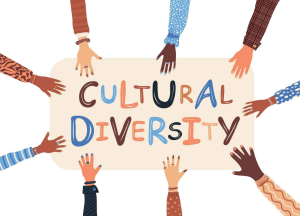
Africa's Leadership Crossroads: Navigating Diversity for Transformation
Africa stands at a pivotal moment, its trajectory hinging on a crucial evolution in leadership styles. The continent's future prosperity demands a departure from traditional, transactional leadership models characterized by positional authority and short-term objectives. Instead, a new era calls for visionary leaders capable of inspiring trust, fostering collaboration, and driving systemic change across diverse societies.
The urgency of this shift is amplified by the unprecedented diversity found within African workplaces today. Spanning multiple generations, cultures, and value systems, this rich tapestry presents both immense opportunities and significant challenges for leaders.
The Diversity Paradox: Untapped Potential
While the African Development Bank has reported that a significant majority (68%) of rapidly growing enterprises boast teams encompassing at least three generations, a concerningly small fraction (26%) effectively manages this diversity. This reveals a central paradox: diversity represents Africa's greatest asset, yet its full potential remains largely untapped due to the absence of bold and intentional leadership.
Africa is home to the world's youngest workforce, a demographic dividend brimming with fresh perspectives, digital fluency, and an unparalleled drive for innovation. This youthful energy converges with the expertise and institutional memory of seasoned professionals, creating a unique blend poised to unlock extraordinary innovation and redefine possibilities across the continent.
However, this convergence can also be a source of friction. Generational and cultural differences, if left unaddressed, can lead to misalignment, disengagement, and ultimately, hinder progress. The manner in which leaders navigate these dynamics, particularly in their initial months, can either establish a foundation for success or sow the seeds of discord.
The Imperative of Inclusive Leadership
The key to unlocking Africa's potential lies in embracing inclusive leadership. Studies have consistently demonstrated that leaders who prioritize inclusive team dynamics from the outset experience significantly higher team engagement and lower turnover rates. This proactive approach has a powerful, long-lasting impact on team performance and cohesion.
This necessitates moving beyond traditional management styles. Simply delegating tasks or enforcing rules falls short of harnessing the full potential of a multigenerational, multicultural team. A transactional approach focused solely on short-term gains and positional authority is no longer sufficient.
Redefining Leadership in the African Context
Thriving in this evolving landscape requires a fundamental shift in mindset – a bold leadership transformation that reimagines the very essence of leadership. It transcends mere people management; it involves cultivating an environment where every individual, irrespective of background or age, feels valued, understood, and empowered to contribute their best work.
True leadership in the modern African context centers on bridging divides, championing empathy, and building a culture of psychological safety where open communication and mutual respect flourish. It demands leaders who prioritize listening over speaking, understanding the diverse motivations of different generations, and acting as a unifying force. By embracing this new model, Africa can transform potential conflict into a competitive advantage, paving the way for unprecedented growth and collaboration.
A New Playbook for African Leaders
This bold shift necessitates a new playbook, one that fundamentally redefines the meaning of leadership in Africa.
1. Human-Centered Mapping: Understanding Your Team's Landscape
Move beyond theoretical frameworks and delve into the practical realities of your team. Prioritize understanding the individual human landscape. Engage in "listening tours," asking simple yet profound questions like, "What motivates you?" and "How do you define respect?". This approach uncovers deep misalignments often missed by conventional surveys. The answers lie within your team; your role is to listen and chart a collaborative course forward.
2. Mastering the Language of Inclusivity: Communication as a Bridge
In a diverse context, communication transcends mere clarity; it demands inclusivity. Leaders must become fluent in the diverse "languages" spoken within their teams. This entails bridging the digital fluency of younger generations with the relationship-based communication preferences of older generations. Proactively establish a "communication charter," a shared agreement outlining how feedback will be given, meetings will be conducted, and conflicts will be resolved. This intentionality transforms potential friction into seamless collaboration.
3. Building Bridges of Trust: Relationships Over Titles
Trust serves as the currency of leadership, earned through relationships rather than titles. Recognize that trust-building mechanisms vary across cultures and generations. Younger professionals value transparency and shared purpose, while older generations often prioritize respect for wisdom and demonstrated competence. Intentionally create spaces that cater to both, fostering social connections alongside structured opportunities to showcase individual expertise. This dual approach builds a foundation of respect that fosters open dialogue and innovation.
4. Designing for Breakthrough Innovation: Harnessing Diverse Perspectives
It is insufficient to simply assemble a diverse team; leaders must actively cultivate an environment conducive to diverse-led innovation. Implement systems that ensure every voice is heard and valued. Employ "perspective rotation with cultural context," systematically assigning team members from diverse backgrounds to lead discussions on specific topics. This promotes a constant influx of fresh ideas and challenges the status quo in a respectful and productive manner. This approach, grounded in both global best practices and indigenous African knowledge, transforms a diverse group into a unified engine of innovation.
Mobilizing Hearts and Minds: The Future of African Leadership
The necessary shift involves moving from managing people to mobilizing their hearts and minds, from positional authority to earned influence. Those who embrace this transformation will not only guide their teams to unprecedented success but will also shape a new era of prosperity for Africa.
Effective communication is paramount. Leaders must articulate their vision in a way that resonates across diverse cultures, generations, and platforms. The ability to communicate with clarity and conviction is no longer a mere option but a critical competitive advantage. Africa's future will be shaped by leaders who not only manage teams but also ignite them, seeing diversity not as a challenge but as a powerful force for shared purpose.


No comments:
Post a Comment